- Home
- Douglas Clegg
Afterlife Page 3
Afterlife Read online
Page 3
“Let’s turn it off, okay?”
“I can’t sleep,” Matt said.
She watched the back of his head. “All right. But get to bed soon. Okay?”
No response.
“Matt?”
“Okay,” he said.
“Don’t forget. You promised you’d walk Livy to the bus stop tomorrow.”
“I do it every Thursday, don’t I?” Then, he turned around to look at her. In his hand, his camcorder. “Smile for the camera, Julie.”
“Aw, you’re catching me at my best,” she laughed. “Are you videoing the Springer show?”
“Nope. Just documenting my life,” he said.
“To bed,” she said. “Another half-hour, okay?”
“Watch the birdie,” he said, following her movements with the camera as she left the room and went back upstairs.
3
She lugged her laptop to bed, and plugged it in and then went online. She checked her email. One email from Hut, sent early in the day. She tried to open it but it was marked as “unavailable.” It bugged her that her email service did that sometimes—or Hut might’ve even done it if he had unsent the email. She wondered what it said. Maybe he had sent a note about what time he’d get home, and then had to change it. Or maybe one of the assistants had sent it. She could’ve called the clinic, but decided against it. No need to be paranoid. No more Clinging Julie, as Hut had sharply called her when she’d shown up a little too much, too often, unannounced at the clinic. She’d heard enough stories about his first wife and how she’d never given him any space for his work.
That won’t be me. I wouldn’t want him hanging around the ER, either.
She saw her sister’s name come up on her computer screen—a instant message.
“Want to Scrabble?” her sister asked.
“Sure. What a day.”
“Let’s phone,” her sister’s words appeared in a instant message box on her computer screen.
Julie picked up the phone and pressed speed dial on her sister’s number. The click on the other end. “Mel. Melly. Melanie. How’d you know I’d be up?”
“Telepathy,” Mel said, her voice upbeat, as usual. “Naw, just a guess. Julie, I’ve got to tell you. There’s a new hot guy at work. I know I’m too old to chase teenagers, but he’s in his twenties, and I just want to do him.”
“Mel.”
“Oh. Sorry. I forgot. You’re married. You’re not allowed to look at the menu anymore.”
“He isn’t home yet. It pisses me off. And drives me nuts.”
“You marry a doc, you marry a God. And God does what God wants.”
“Enough.”
“I’m sorry. You married him, not me. You could’ve had my life. The revolving door of men.”
The Scrabble board appeared on the computer monitor’s screen. Mel had already begun putting letters on it. The word “round” came up.
“What if he’s had an accident?” Then, Julie added, “I can’t believe you got all five letters for ‘round.’ You must be cheating.”
“Luck of the draw,” Mel said.
Julie figured out her word for the online Scrabble board: she just added a “g” to “round” to make it “ground.” A genuine coup in Scrabble, as far as she was concerned.
“He hasn’t had an accident,” Mel said. “It’s not like this is the first time. Shall I remind you of the other nights he’s been late?”
A slight pause on the line. Something left unsaid. Better left that way, Julie thought. Don’t think about the phone number you found in his jacket. Don’t think about it.
“He’s fine,” Mel said. “You work long hours, too. You know the life. Maybe it’s completely innocent.” Mel had that edge to her voice, and Julie hated hearing it. It meant that her sister was just saying what she thought Julie wanted to hear.
“You think everybody cheats on everybody,” Julie said.
“Maybe Hut’s different.” Mel said it with her liar voice that was a little too cutesy.
On the online Scrabble board, Mel added the word “under” to “ground.”
“You are too lucky to get those five letters. It almost feels like cheating,” Julie said.
“The luck of the draw.”
“Okay, I’ll trust you. Cheater.” Julie chuckled, glancing through the letters she had to see how she could score triple points.
“Look, Julie, if you and Hut are still having problems…”
“You know,” Julie said. “When we met, I thought I’d be working beside him. The way mom and dad did.”
“And that would lead to a fast divorce. Just like mom and dad.” Mel quickly changed the subject. “Hey, is Matty over his fever?”
Suddenly, on the monitor’s screen, Mel had just put the word “nod,” adding an “od” to the first “n” of “underground.” This really screwed with Julie’s plans to use the same squares.
“Over one obstacle and on to another. He’s not doing great. A bad episode today.”
“You sound like a wicked stepmother.”
“I am. I am. I love that kid. I just feel at a loss sometimes. I don’t understand so much about him. What he goes through. He was drawing things on his arms…in class…with his pen.”
Julie put in the letter “s” under the “u” of “underground.”
“Kids do that, I guess,” Mel said, although her voice had shifted slightly as if she were hiding her alarm.
Then Julie closed down her browser so that the Scrabble board disappeared.
“Hey, did you just destroy our game?” Mel asked.
“Let’s not play anymore. Too many things going on. Look, here’s the thing, Mel. He carved it into his skin. I mean gouged. These weird little drawings.”
“Jesus. Is he okay?”
“They cleaned him up, and he seems okay. I guess.”
“What’d the psych say?”
“Not much. The usual.”
“More meds?”
“I hate that stuff. But yes.”
“What were they of?”
“What do you mean?”
“The drawings? On his arms?”
“I’m not sure. He wouldn’t tell me. Looked like a sun maybe with sunbeams coming out of it, and then one of them looked like a bunch of circles. He talked about someone named Jeannie or Gina and something about his hand and how it was bad. I guess it was just one of his moments.”
“Aw. Poor kid. He’s been through a lot. You got to give him credit. And you, too. Hang in there, wicked stepmommy. How’s my darling niece?”
“Fine. Wonderful. She sat up with Matt and read him a bedtime story. He loved it. He was like a different kid than the one who cut into himself today. I wish the psychiatrist could…well, wishing won’t get me anywhere.”
“Aw, you’re quite a mommy. You give those kids extra butterfly kisses from Aunt Melanie.”
“Oh, I almost forgot. Livy told me to tell you that she expects to see more of you in the next few days.”
“She threatening me?” Mel laughed. “You know, she’s a lot like her gramma. Did I tell you about mom’s new hobby?” Mel always knew how to pull Julie off her worries and into funny anecdotes about their mother’s life. Mel regaled her with a long involved tale with a funny punch line about her mother wanting to open a used bookshop that only sold self-help books. “She said it’s because everyone needs to help themselves. She thinks it’s what changed her life. All those books on codependency and her diet books and that Dr. Phil book. And now she’s getting into ESP. I think she’ll end up being a witch.” They both laughed.
When they finally got off the phone, it was nearly midnight, and Mel signed off with her usual, “When you were born, you know what I told mom? I told her that you were going to be my favorite sister in the whole world. And you still are, thirty-four years later.”
“And it’s still easy, because I’m your only sister,” Julie chuckled. “Say goodnight, Gracie.”
“Good night, Gracie.”
&nbs
p; After she’d hung up the phone, Julie drew out the previous Sunday’s New York Times magazine section and opened the page to the crossword puzzle. Puzzles helped her relax a bit, and although she had trouble with this one (nearly forgetting the name of the state bird of Hawaii—“Nene”—a crossword puzzle staple), it seemed to turn off some awful buzzing in the back of her head. She took a half-dose of Ambien to help get her to the sleeping point.
When sleep came, not long after, she thought she heard the phone ring, but it seemed to be in the wonderful dream she was having, so she didn’t try to answer it.
4
A feeling of intense physical excitement overcame her body, and he touched her hand, lightly, and held her wrist as if to restrain her. Then, she felt a tender shiver go through her, a distinct sexual charge. Hut was there, rubbing her, licking her nipples, but she couldn’t move at all—somehow she was tied to the mattress. She felt wave after wave of delicious sensation and his hand moved down her stomach, and crept between her legs.
She gasped. Something about his face had changed. It seemed to fade in and out of focus.
5
She woke to sweat-soaked sheets, in the dark of her bedroom.
Livy had crawled into bed beside her, in the night. Julie felt embarrassed to have had such an erotic dream with her daughter sleeping beside her.
She watched Livy’s face, as she slept, and waited for the sun to come up.
6
The next morning, Julie checked the machine for messages, but there were none. Hut had not come home at all. She called his cell phone, but got the recording. She called the clinic; got his voice mail.
I hate you Hut Hutchinson. I hate you for doing this to me. For making me suspicious. For making me call hospitals in case you had accidents and then finding out you had just worked too late and hadn’t thought it important enough to call me. Or your kids. I hate you for being this cold to me.
Julie you are nuts. He loves you. He is working on important things. He loves the kids. He probably just pulled an all-nighter working on some emergency or other and is still asleep in that little cot in the filing cabinet room at the clinic.
7
Matt had been up by six. He had his Sony camcorder out and was making a movie of birds in the backyard at the birdfeeder. When he saw Julie at the kitchen window, he turned the camcorder on her and waved. She waved back, opening the window to tell him that she had some oatmeal and toast with raspberry jam for him for breakfast. He lowered the camcorder from his face, and scowled a bit. “Oatmeal? What about Pop Tarts?”
“I’ll pick some up tomorrow at Shop Rite,” she said. “In fact, if you want anything else special, let me know.”
“Maybe some Dr. Pepper?”
There was an everydayness about the two of them talking through the open window that made her smile and forget the bad day that Matt had, and nearly forget the little scratches and scars on his arms.
She had to rouse Livy from what must’ve been a fantastic dream, because even as she hustled her into the shower, Livy kept talking about the wondrous things she saw the previous night, including flying horses.
“And in my dream, Daddy kept asking me if I could get up, and I said, of course I can daddy, I just want to keep sleeping. But you know what? I did get up. I thought I heard him say something.”
“Daddy had to work all night,” Julie said, kissing her on the forehead, smelling Livy’s hair—the Johnson’s Baby Shampoo of it, the little tiny last bit of babyness in her six year old daughter.
“You never work all night,” Livy said. “Daddy works all the time, but you don’t.”
“I know. I have a perfect job.”
“Like on ER.”
“Just like that,” Julie grinned. “Plus, I get to be Mommy.”
“Poor Daddy,” Livy said. “He never gets to be Daddy anymore.”
“Poor Daddy is right,” Julie said, and tried not to think of the slip of paper with a phone number on it that smelled of perfume that she’d found in Hut’s overcoat, a number she had never called, a woman whose name she didn’t know, a woman who might not even exist except in a jealous, insecure wife’s imagination.
8
She did her telephone punch-in when she got to Rellingford Hospital, and then proceeded down the long rose-colored hallway to the ER. She passed some medics and other nurses, said the obligatory morning hellos and listened to the lukewarm jokes, but her mind was elsewhere and she was craving coffee. The staff in the ER was small, like everything else in Rellingford. There was simply the doc—Dr. Davison—and a unit clerk, and a few nurses on the day shift. Night shift was even more bare bones. Not a lot happened out in Rellingford on a continuing basis for the ER, and some days, nothing happened beyond a twisted ankle or a kid who need a few stitches and a hug. There were always lab techs around, the respiratory therapists, but it was bare bones in the ER most days, with an on-call staff in case anything major came down.
She picked up the report from Nancy Maier, the outgoing staff nurse, and then grabbed a cup of coffee from the vending machine room, and thank God it was Starbucks or she would’ve been in a bad mood over the usual mud-in-a-cup, and then she went off to triage to get the long shift going.
By the late afternoon, two new patients had come in, one of them from a car wreck out on the main highway, which made her think about Hut, and hope that he was okay. Surely, he’d page her or call, and, she had to remember, if something happened to him, she’d have been contacted.
The patient who arrived had been lucky—a broken leg, perhaps, and a dislocated shoulder. With her coworkers and the doc on his way, Julie got to work in triage.
Just before five, her shift supervisor called her over to an empty office, and said, “Julie. Something’s happened.”
The supervisor had that tone of voice that meant something horrible. Something tragic. She’d heard the tone when the news came about any major public tragedy—from the World Trade Center horror of a few years’ previous to the sudden death of one of the visiting physicians. Immediately, Julie thought of the children. Of Matt and his troubles. Of Matt and the time she’d seen him with a knife, and even though he hadn’t done anything to himself with it, she had known—he had communicated with his eyes—that he was thinking about his real mother, about where she was, the institution outside Philadelphia, about all the things that Matt had whirling in his mind at all times…
“Not Matty,” Julie said, tears already forming in her eyes. Images of Matt, memories of him, his violent outbursts, his tantrums, his moods.
“No,” her supervisor said, softly.
Chapter Four
1
The morgue wasn’t located in the hospital, but at the sheriff’s station one township over. It was an area of what New Jerseyans called the Lake District that was less wooded and natural than paved over and set up right off the major highway. The sheriff’s station looked like an industrial park, and the morgue was toward the back. Julie had insisted that she could drive, that it was a mistake, that none of this made sense, and she was fine, until she saw the staircase down to the morgue.
It looked like she had to walk down into limbo. It grew cold with each step, and she had to steady herself on the railing. She felt as if, at any moment, she might trip on the stairs.
A policewoman accompanied her, and Julie could tell that the woman watched her to make sure she wouldn’t collapse or stumble.
She sat down on the seventh step, and covered her face with her hands.
“We can sit here for as long as you want,” the cop said.
Julie wasn’t sure how much time had passed. “I’ve seen dead people before,” she said, steeling herself, wiping her eyes. “It’s all right. It is. I’m a nurse.” She wasn’t sure if she said any of this aloud or not, as she got up and went down to the chilly floor below, where the lights were a flickering blue and the smells were talcum, alcohol, and something that reminded her too much of the Emergency Room.
And then, the roo
m itself: shiny and silver and garish in the overhead lighting, which was flat and made the coroner and the sheriff look as if they, too, were dead, as they stood there over the body. In the far corner of the room, three large blue plastic barrels that seemed out of place. It wasn’t as big a room as she had expected, and she felt crowded by the others there, and self-conscious because she was sure they were just watching her as if she might do something irrational.
She hadn’t looked at the face of the dead man until then.
2
“Mrs. Hutchinson?”
“It’s not him,” she said. “Thank God. Oh my God. It’s not him.”
The sheriff was a man named Cottrell, who she knew only from the time he’d brought Matt in when Matt had stolen a car at twelve, and the sheriff told her that the car was undamaged, the owners were willing to drop charges, and Matt had been bawling like a baby. Rellingford was that kind of town. Cottrell had told her, then, that he understood Matt’s situation from “Dr. Hutchinson,” and so he hoped it would just be an isolated incident. Dr. Hutchinson was known in Rellingford. They knew of his first wife, and her “troubles.” They knew of Matt and his “situation.”
She thought back then that she probably would never see the sheriff again. How many times in life do you have to see the local authorities?
She took the facial tissue he offered, and wiped her eyes. Her vision came back into focus. She felt a boundless happiness for that moment, and a distant sorrow for this murder victim. She looked at the face. She didn’t recognize him at all. She could see why the mistake had been made. Hut had floppy auburn hair, too, and he had that kind of squarish jaw that reminded her of the Midwest and cornfields for some reason. But that was really it. This corpse in front of her was pale, and the lips and nose were all wrong. “It’s a mistake,” she said. “It’s not him.”

 Mordred, Bastard Son
Mordred, Bastard Son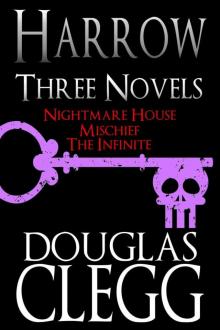 Harrow: Three Novels (Nightmare House, Mischief, The Infinite)
Harrow: Three Novels (Nightmare House, Mischief, The Infinite)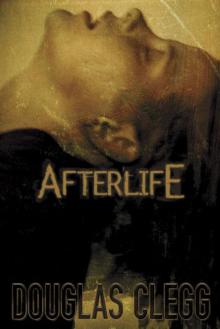 Afterlife
Afterlife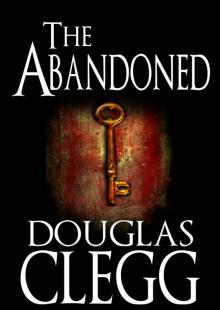 The Abandoned - A Horror Novel (Thriller, Supernatural), #4 of Harrow (The Harrow Haunting Series)
The Abandoned - A Horror Novel (Thriller, Supernatural), #4 of Harrow (The Harrow Haunting Series) The Queen of Wolves
The Queen of Wolves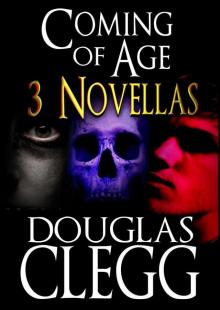 Coming of Age: Three Novellas (Dark Suspense, Gothic Thriller, Supernatural Horror)
Coming of Age: Three Novellas (Dark Suspense, Gothic Thriller, Supernatural Horror)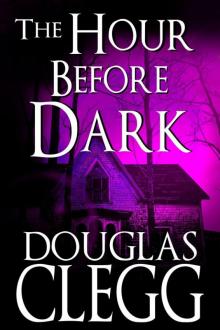 The Hour Before Dark
The Hour Before Dark Isis
Isis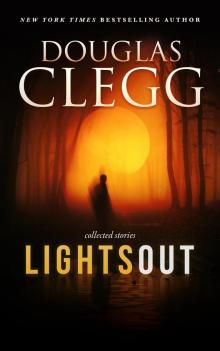 Lights Out
Lights Out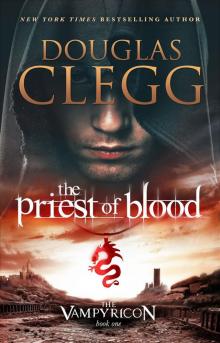 The Priest of Blood
The Priest of Blood Criminally Insane: The Series (Bad Karma, Red Angel, Night Cage Omnibus) (The Criminally Insane Series)
Criminally Insane: The Series (Bad Karma, Red Angel, Night Cage Omnibus) (The Criminally Insane Series) Halloween Candy
Halloween Candy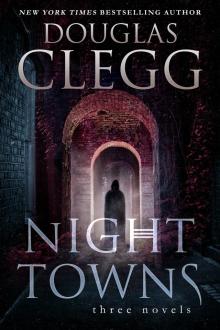 Nights Towns: Three Novels, a Box Set
Nights Towns: Three Novels, a Box Set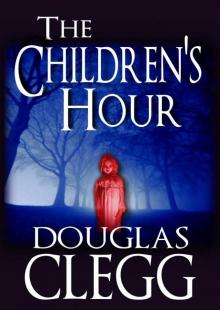 The Children's Hour - A Novel of Horror (Vampires, Supernatural Thriller)
The Children's Hour - A Novel of Horror (Vampires, Supernatural Thriller)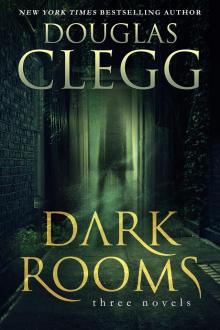 Dark Rooms: Three Novels
Dark Rooms: Three Novels![[Criminally Insane 01.0] Bad Karma Read online](http://i1.bookreadfree.com/i2/04/10/criminally_insane_01_0_bad_karma_preview.jpg) [Criminally Insane 01.0] Bad Karma
[Criminally Insane 01.0] Bad Karma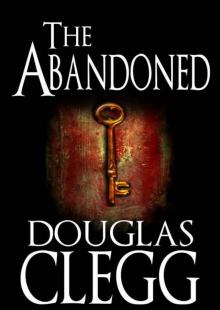 The Abandoned - A Horror Novel (Horror, Thriller, Supernatural) (The Harrow Haunting Series)
The Abandoned - A Horror Novel (Horror, Thriller, Supernatural) (The Harrow Haunting Series) Halloween Chillers: A Box Set of Three Books of Horror & Suspense
Halloween Chillers: A Box Set of Three Books of Horror & Suspense